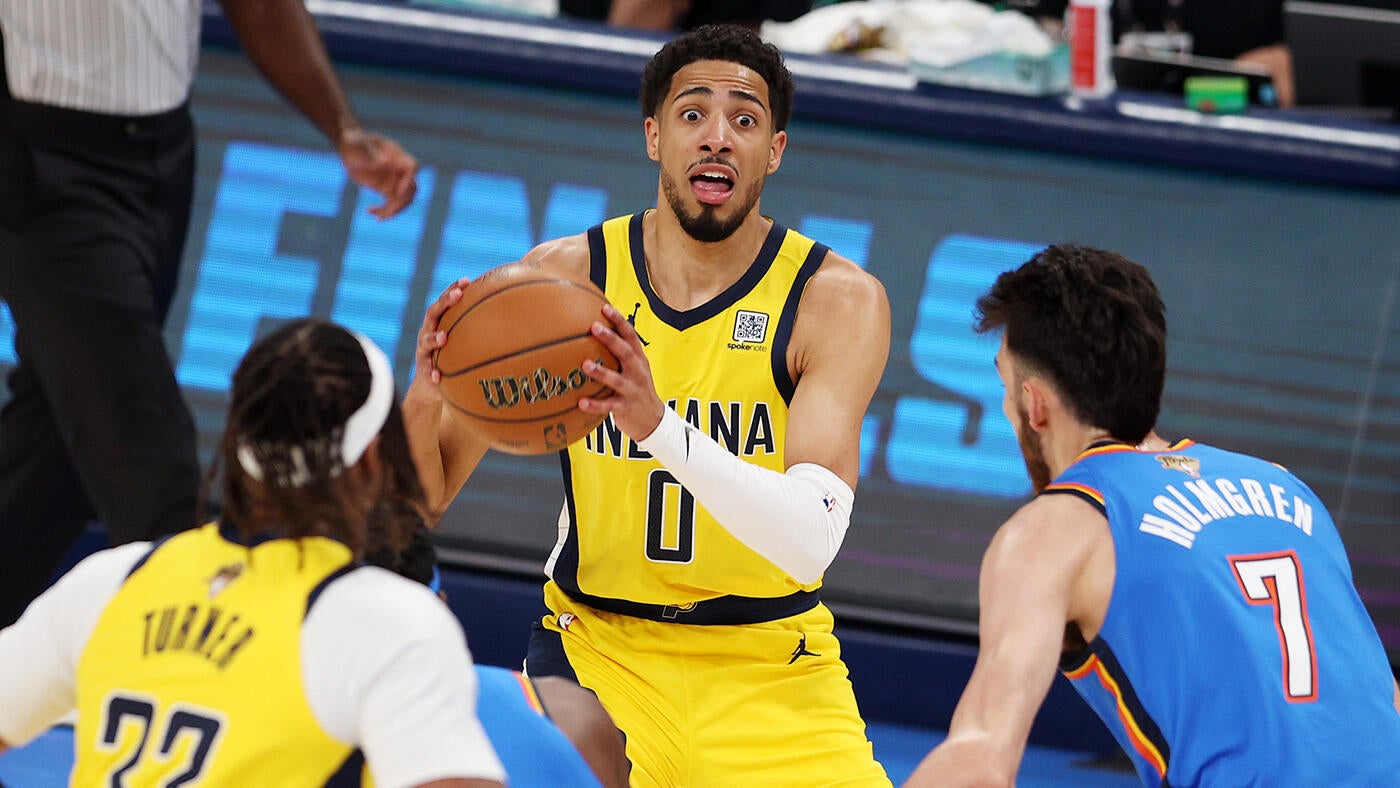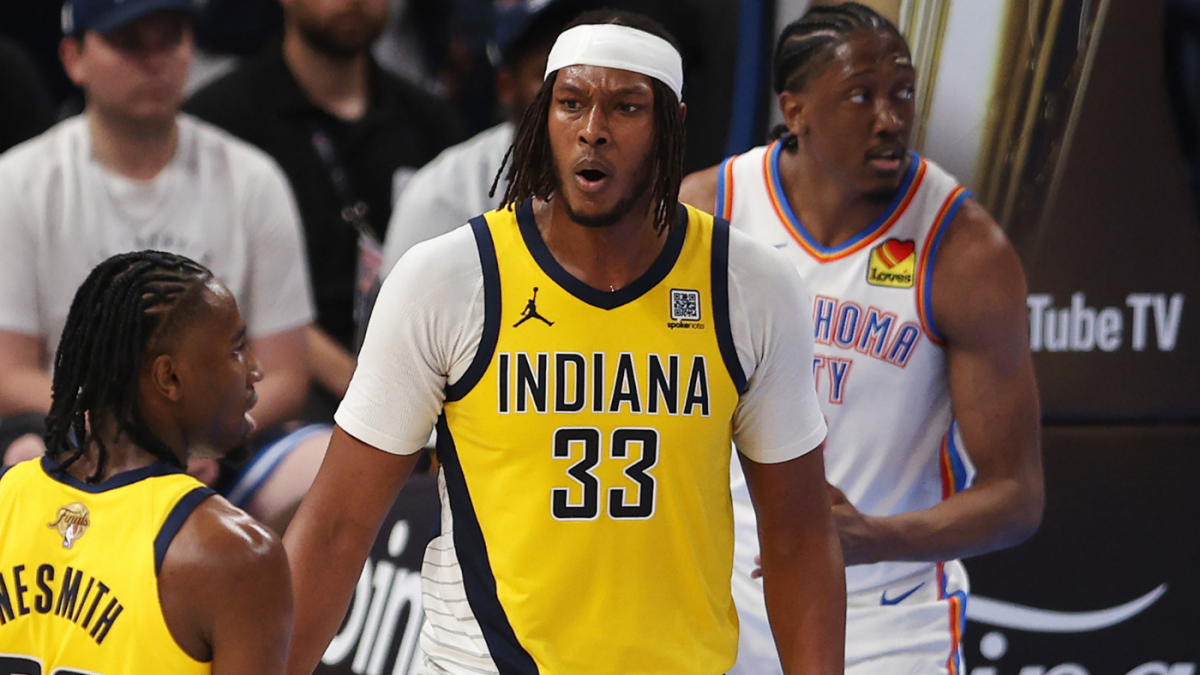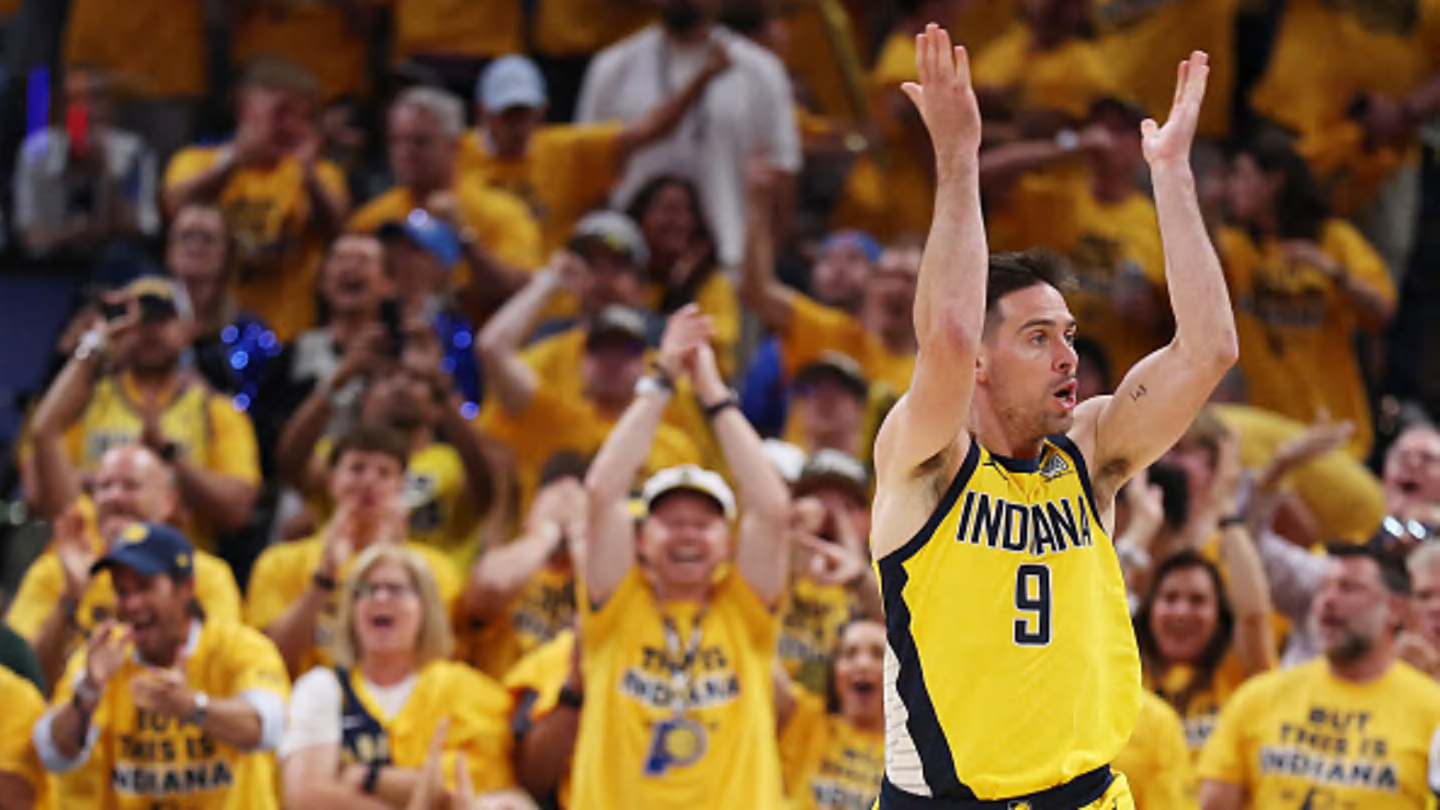They say life’s two certainties are death and taxes, but for the past 20 years, the Pacers have done a pretty good job of avoiding the latter. They last paid the luxury tax in 2005. The only other teams to have avoided the tax for the two decades that have passed since are the Hornets and Pelicans, who have never come nearly as close to contending as Indiana — currently tied 1-1 with the Thunder in the NBA Finals — does frequently. This means Indiana has never paid the more punitive version of the tax that was introduced in 2011, and it certainly hasn’t approached the downright draconian tax rates that are feasible under the right circumstances in the 2023 CBA. No, the Pacers, historically speaking, have been too cheap to approach those lines.
But apparently, that’s going to change. Starting center Myles Turner is set to become a free agent, and the Pacers don’t intend to let him walk for nothing. ESPN’s Shams Charania reported Sunday that “the Pacers have determined that they will be entering the luxury tax next season for the first time in 20 years” for the sake of re-signing Turner. That’s great news for Indiana fans, but it raises further questions. Specifically, how deep into the tax are they willing to go, and how long are they willing to stay there?
As of right now, the Pacers have around $17 million in room below the tax line, but re-signing Turner is expected to cost around $30 million next season (and more in the years that follow). If the Pacers pay Turner that much next year, fill out their roster and make no further moves, they’re not only going into the tax, they’re flirting with the second apron.
Could they potentially save a bit of money by dumping another contract? Sure, but whom? The downside of playing a 10-man rotation as Indiana largely has it that it makes your team beholden to many more players. Basically, it’s hard for the Pacers to just dump someone because everyone they use is good. Sure, they could potentially duck the tax (or come close) by trading Obi Toppin or T.J. McConnell into someone’s mid-level exception, but both of those players are important parts of this year’s Finals roster.
Things start to get harder the further out you go. Bennedict Mathurin is extension-eligible this offseason. A new deal would start during the 2026-27 season. A year after that, Aaron Nesmith’s payday comes up, and if the Pacers develop him into a keeper, so will Jarace Walker’s.
None of this is to suggest that the Pacers have been condemned to cap hell. It’s quite the opposite, in fact. They’ve managed their books almost flawlessly. Few teams have been as fastidious about locking up role players as early as they can for as long as they can. Part of what made the construction of this year’s roster possible was the wise renegotiation-and-extension they signed Turner to a few years ago. They used cap space to front load that deal and are now paying him less than he’s worth. All things considered, the Pacers have managed the cap as well as they reasonably could.
NBA Finals: Tyrese Haliburton a complete non-factor in Game 2 vs. OKC, despite what his stat line might say
Jack Maloney

But remember, they’ve also tended to operate with a tighter belt than most teams. It’s easier to act with fiscal responsibility when there’s a mandate against paying the luxury tax. The Pacers are now seemingly willing to pay it, but they’re choosing to do so right as the rules have begun to punish teams for doing so more than ever. This is not going to be a minor tax bill. This is going to be tens of millions of dollars over the course of several seasons.
It’s entirely possible that the Pacers are preparing for this. ESPN’s Brian Windhorst noted earlier in the playoffs that the Pacers have taken on new investors in recent years with this tax bill looming. The Ringer’s Zach Lowe speculated that minority owner Steven Rales, should he ever gain control of the team, would be far more willing to pay luxury tax bills than longtime owner Herb Simon has ever been. There appears to be understanding within the building of just how expensive this team could soon become.
But if there were ever a time for the Pacers to pay enormous tax bills, it would be now. This isn’t just an NBA Finals team, it’s one positioned to remain in the hunt for years to come. The Boston Celtics are down with Jayson Tatum recovering from a torn Achilles. The Eastern Conference is vulnerable. The majority of their players are young, and the ones who have re-signed already are on favorable deals. If the Pacers play this right, they have a long window to contend ahead of them.
That’s just going to mean biting the financial bullets that come with that. The Pacers of the past have cut financial corners. This team, given its reliance on depth, can’t do that. Going into the luxury tax is a good start, but it’s an obvious necessity. Dipping a toe in the tax pool isn’t the test here. Diving into the deep end, and staying there as long as it takes, will be.


